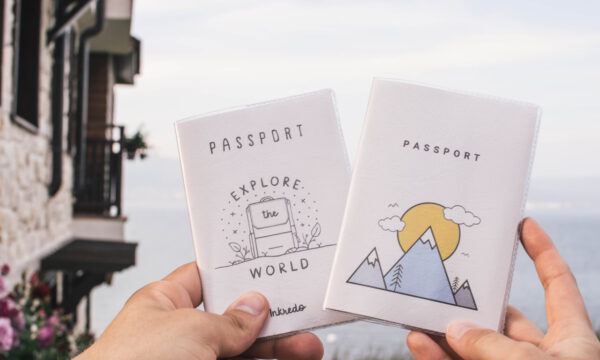Travelling with medication: Important facts to bear in mind

Whether going on holiday, travelling for work, or looking for an extended stay, one thing travellers won’t want to be without is their medication. However, the rules for travelling to another country with meds vary widely, and it’s crucial to understand what can be taken, how to pack it and how to avoid any trouble ben route. Fortunately, there’s all this information and more in the post below.
Pack medications in the carry-on
First of all, those travelling abroad with medications must ensure that they pack them right. This means where possible storing them in carry-on luggage, rather than a larger suitcase that will go in the hold.
There are two good reasons to travel with medicines in carry-on luggage. The first is that airplane holds don’t tend to be temperature controlled, which means they can render some medications like insulin ineffective. Indeed, when travelling with medicines that need to be kept below 25C or below room temperature, there may also be issues when visiting warmer locations. Happily, one can talk to experts like those at the Oxford Online Pharmacy to get advice about storing such medicines for travel. Depending on the type of medications and the temperature required, a pharmacist may recommend storage options such as a cool bag or pouch, or an ice bag. It’s always recommended that to declare these when going through customs to prevent any problems later on.
The second obvious reason to pack medication in carry-on bags is that, while rare, issues with lost luggage do happen, and if one’s whole medication supply is in a hold suitcase, there’s a risk of being left stranded at the destination without access to any at all. To that end, it’s a much safer idea to keep meds to hand when possible.
Don’t separate or repackage medicines
In addition to packing medication in carry-on bags, travellers should also try and keep them in their original blister packaging, as well as their box or bottle. This is because the original packaging should show the patient’s details, including their name, address and dosage, demonstrating to anyone checking the validity of the drugs.
Always travel with a doctor’s note
In addition to correctly packing medications, it’s important to always travel with a note from one’s GP and a copy of the official prescription. It’s straightforward to ask for a GP letter, and it should contain both the name of the condition the medication is needed for, as well as the details of the medicine at hand. Users should be sure that it states the generic drug name too, not only the brand name.
It’s worth noting that travellers may have to pay out of pocket for this letter, as GPs are not required to perform this service on the NHS. However, for the advantages it offers, getting a letter is usually well worth the fee.
Also, getting a prescription and GP letter translated into the language spoken in the destination country (or connection) can help prevent hold-ups and confusion concerning medication as well. It’s even possible to do this digitally so they are easy to find at each border.
Check the specific local rules for travelling with medication
When travelling with medication it is also essential to check the rules of the specific locations on the itinerary, including countries one is just passing through, because they will have customs processes that are necessary to abide by too.
Indeed, different locations will have particular rules about the amounts and types of medications that can be carried, with medications that are not controlled in the UK being listed as controlled in some locations, and so privy to more stringent regulations. (The same applies to bringing certain medications purchased abroad back into the UK, so its essential to do the homework beforehand to avoid ending up in a lot of trouble!)
In particular, the gov.uk website lists Turkey, Pakistan, and India as locations with more stringent controls. Many painkillers containing codeine are not allowed when travelling to the UAE either. To check the laws around certain medications in these, and any other country, travellers will need to contact the relevant foreign embassy in the UK, details of which they will find here.
In the event that one of the medications needed is not allowed in the destination, there are some options to explore. The first is to consult with a doctor to see if they can offer an alternative that is not prohibited before flying. It’s important to leave enough time to organise this before beginning the trip as no one wants to be scrabbling around trying to get this sorted along with all the other stress of leaving.
The second option is to apply for a personal license that allows patients to take controlled medications abroad. To get a personal license one needs to email dflu.ie@homeoffice.gov.uk with their home address, the reason for the trip, and their travel details, requesting an application form. It’s also a good idea to include one’s GP’s registration number, the name of the medication, as well as the strength, dose and quantity needed. It’s necessary to make the application at least 15 working days before travel, but even earlier is preferable.
Think tactically
Finally, when travelling with medication it pays to be tactical about what is needed on the trip, and have a plan for keeping up with the medication while in transit. For example, it’s best to be sure to prioritise medications that are essential to one’s health or that will cause withdrawals if they’re not taken, like SSRIs.
Also, if more than a 30-day supply of pills is needed, it’s essential to remember to speak to the GP at least two months in advance, so they can issue extra supplies. It’s also sensible to remember, as a rule, that it won’t be possible to get a UK prescription filled overseas.
Travellers should be sure to make plans for taking their medication in transit. This means making sure they have enough with them on their flight and setting a reminder to prevent missing a dose because of time differences. After all, one doesn’t want to invest all this time and effort into making sure they can travel with medication safely if they forget to miss a dose during the trip!
The editorial unit




















Facebook
Twitter
Instagram
YouTube
RSS